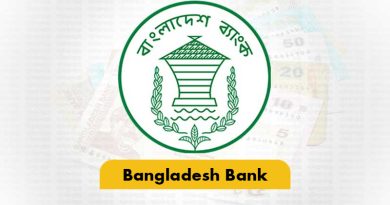July 19, 2025
The Government of Bangladesh is seeking $300 million in loan assistance from South Korea’s Economic Development Cooperation Fund (EDCF) to transform the country’s technical and vocational education landscape. The proposed funding will be used to upgrade 64 Technical Training Centres (TTCs) and six Institutes of Marine Technology into state-of-the-art Centres of Excellence.
According to officials from the Ministry of Expatriates’ Welfare and Overseas Employment, the initiative aims to dramatically boost the annual output of skilled workers from around 30,000 to over 400,000—aligning with international standards and targeting both local and global job markets.
A preliminary development project proposal (PDPP) has already been submitted to the Planning Commission and the Economic Relations Division (ERD) for processing. The project, titled “Skilled Manpower Development Focusing on Overseas Employment”, is designed to increase the proportion of skilled migrants, which currently stands at just 40% of the country’s overseas workforce.
Sources in the Planning Commission confirmed that the Industry and Energy Division has conducted an initial review of the proposal. Meanwhile, the ERD is preparing for high-level meetings with South Korean counterparts to finalise funding arrangements.
A four-member delegation from South Korea’s Ministry of Land, Infrastructure and Transport, along with representatives from the Export-Import Bank of Korea (KEXIM), is expected to visit Dhaka next week to assess ongoing and potential development projects under Korean support.
The modernisation project, which is expected to continue through 2030, will involve the construction of new facilities, renovation of aging infrastructure, installation of advanced lab equipment, and development of internationally benchmarked curricula. The upgraded institutions will also offer trainer training programs and specialised courses in high-demand sectors, according to the PDPP.
Additionally, eight divisional manpower complexes will be constructed as part of the project. The training centres will introduce digital learning modules, forge partnerships with global certification bodies, and align with international licensing standards to boost the credibility of Bangladesh’s Technical and Vocational Education and Training (TVET) system.
A senior official at the Expatriates’ Welfare Ministry noted that many of the country’s TTCs, some over six decades old, are no longer equipped to meet the demands of modern labour markets. “The project will help bridge the skills gap in both local industries and international markets like South Korea, Japan, the Middle East, and Europe,” he said.
Officials further added that the government’s development of economic zones (EZs), export processing zones (EPZs), and hi-tech parks could create up to 10 million new jobs over the coming years—making the availability of a skilled workforce more critical than ever.=–






